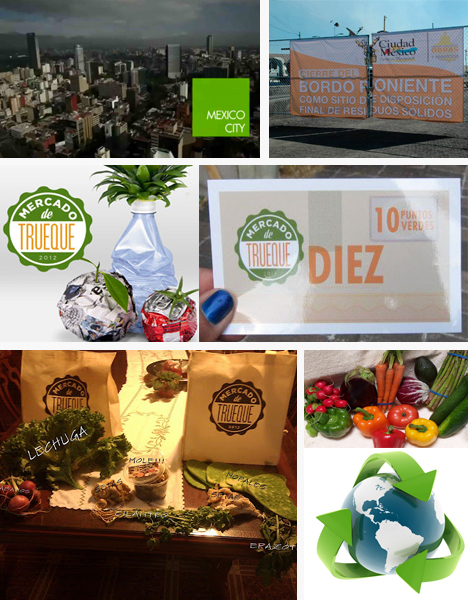Day in and day out, Mexico City’s 20-million-plus residents generate 12,600 tons of waste. Until recently, a scant 15% of the 40 million tons of cast-aside material was actually recycled.
Considering the fact that the Bordo Poniente — their 975-acre, 76-million-ton, several-decades-old garbage-packed landfill (famed as being one of the largest in the world) — closed at the end of last year, it is no wonder why Mexico’s capital has been bracing itself for a waste landslide.
When vast disposal facilities reach maximum capacity and are either shut down or are otherwise inoperable, crisis is inevitable. No one wants trash to accumulate on the streets (as has been the case in Hong Kong and Naples, Italy, among many other global cities) — the visual disarray is almost as bad as the olfactory assault and the potential for disease to spread.

- This weekly, government-run barter market occurs every Sunday through the end of 2012.
- Attendees are encouraged to bring a minimum of 1 kilogram or a maximum of 10 kilograms of clean, properly separated recyclable materials (the equivalent of approximately 2 pounds minimum or 20+ pounds maximum of reclaimed packaging).
- Acceptable materials include Tetra Pak containers, cardboard/paper, PET plastic, metal cans and glass ranging in color from clear to green, blue and amber.
- In exchange for recyclable materials, participants are awarded barter points that can be used to obtain a diverse array of agricultural products, including assorted vegetables, herbs, plants, seeds, cheeses and meats.